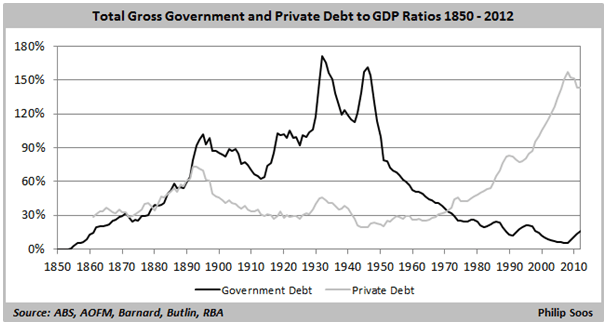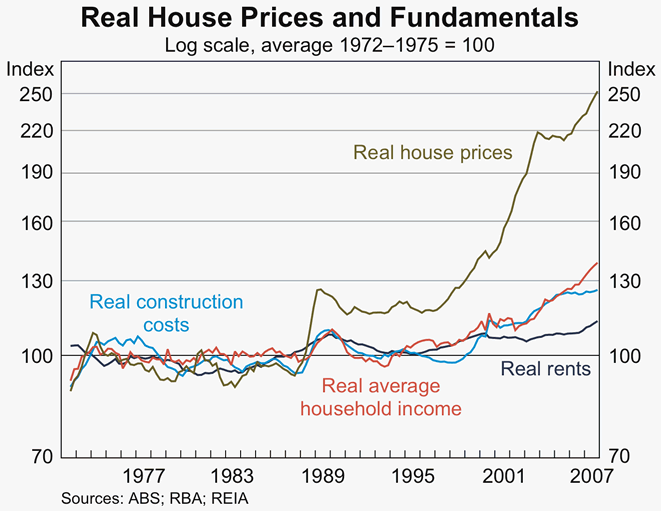...had quarantined all property losses from deduction against income from personal exertion[/U][/I] (other business or salary and wage income). Any losses incurred in any one year would be accumulated on a register and would only be allowed as a deduction from income from property in succeeding years. In so doing property income and property losses were in one 'bucket' and personal exertion income and losses were in another 'bucket'.
This ensured that either at personal level and more importantly at a national level, that property losses would not be subsidized by income from personal exertion. In applying this formula, all previous governments thereby isolated and consequently discouraged capital speculation being subsidized from the general income tax receipts pool.
...
subsidy
ˈsʌbsɪdi/Submit
noun
1.
a sum of money granted by the state or a public body to help an industry or business keep the price of a commodity or service low.
"a farm subsidy"
a sum of money granted to support an undertaking held to be in the public interest.
"she was anxious about her Arts Council subsidy"
a grant or contribution of money.
"the position is generously rewarded and benefits include a mortgage subsidy"
synonyms: grant, allowance, endowment, contribution, donation, bursary, gift, present, investment, bestowal, benefaction, allocation, allotment, handout; More
2.
historical
a parliamentary grant to the sovereign for state needs.
DEFINITION OF 'SUBSIDY'
A benefit given by the government to groups or individuals usually in the form of a cash payment or tax reduction. The subsidy is usually given to remove some type of burden and is often considered to be in the interest of the public.
I would like to point out that you are using the word subsidy (subsidise, and such like) in the situation of negative gearing on residential properties by individuals when it is available to all other tax entities, eg company and investments, eg shares. Negative gearing is part of the capitalist system. You incur costs, and all costs should be taken into account so that the real or net profit can be calculated. Then, tax is morally applied on the real profit. If all costs are not taken into account immediately, then real net profit is not calculated and then how should the process be moral - tax immediately when you are in profit, ignore when you have a loss or defer, consider only investments that make a profit ignore the losses on properties?
No one would contemplate treating companies like this, but they still try to apply to individuals.
However, a case can easily be made that the private rental sector is cross-subsidising public housing. For example, in the ACT, landlords in the private rental sector pay land tax, not home owners. An online dictionary defines cross subsidization as the practice of charging higher prices to one group of consumers (private sector landlord) in order to subsidize lower prices for another group (public housing). Often land tax costs more than the council rate.


